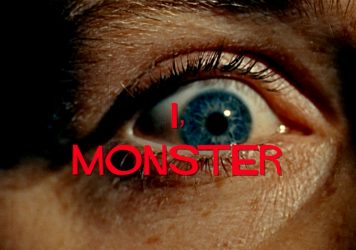
Tilman Singer’s intense psychodrama was among the highlights of the inaugural genre showcase.
The horror genre somehow manages to be both mainstream and niche. This is why it is increasingly found lurking at the margins of generalist festivals, while also strutting less abashedly at the centre of a number of genre-specific events. In the UK, these comprise an annual rotation of FrightFest, Grimmfest, Celluloid Screams, Abertoir, additional FrightFests, as well as numerous other minifests, happenings and one-off events – all catering to the insatiable tastes of horror fans while showcasing work from an ever-expanding, occasionally exquisite corpus of low-budget and indie unnervers. And now there is a new kid on the chopping block, the Soho Horror Film Festival, which recently enjoyed its inaugural edition in the bijou basement cinema of the Karma Sanctum Hotel on Warwick Street.
Here, over two tight-packed days, 12 features and even more shorts (each carefully matched in theme to the accompanying feature) were screened, all under the fastidious and eclectic curation of programmer Mitch Harrod. The regendered trope-twisting hilarity of Laurel Vail’s What Metal Girls Are Into and Ilja Rautsi’s Helsinki Mansplaining Massacre were the standouts in what was a very strong showcase of shorts, while among the most enjoyable features were Trevor Stevens’ education satire-cum-western Rock Steady Row, Mike Testin and Matt Mercer’s madcap Dementia Part II, Luke Jaden’s family haunter Boo!, and Pavel Khvaleev’s elegiac apocalypse Involution. But the highlight of the weekend was Tilman Singer’s Luz, which headlined a special Queer Fears Gala also including three LGBTQ short films.
Bloody and in a daze, cab driver Luz Carrara (Luana Velis) walks into a German police station and gets herself a can from the drinks machine, entirely unnoticed. After all, as a foreign, working class woman, Luz is practically invisible, the kind of person who would hardly capture anyone’s attention. Although there is someone whose eye she has caught, someone who yearns deeply for her, someone who will go to great lengths to engineer another date with the young woman. The receptionist at the station, however, does not even register Luz’s presence until she starts raving at him in Spanish like a woman possessed and he can no longer ignore her.
Meanwhile, in a cocktail bar on the other side of town, consulting psychiatrist and psychotherapist Dr Rossini (Jan Bluthardt) has an increasingly drunken conversation with the strange Nora Vanderkurt (Julia Riedler). After she tells Rossini a peculiar story about the “very special gift” of her girlfriend Luz, whom she had first met in a Chilean Catholic girls’ school and just this very night chanced upon again in Luz’s cab, Nora asks for Rossini’s “therapeutic support”. Rossini is then called in to interview the disturbed Luz.
Rossini’s hypnotherapeutic session with Luz unfolds in a dull police conference room, in the presence of Commissioner Bertillon (Nadja Stübiger) and the Spanish translator Olarte (Johannes Benecke). But as Rossini gets Luz to reenact her various encounters with Nora, the radical role play that ensues causes identities to merge (and emerge), and stories set years apart to overlap and blur, with one party struggling to take control of the interview and to communicate a truth that none present can at first see. It is an intense closed-room psychodrama, driven by the powers of suggestion, projection, transference – and by something else, beyond the confines of police procedural or psychiatry, even transcending gender, culture and the limits of the physical body.
There is, buried deep within Luz, a type of narrative recognisable from horror, but Singer has ingeniously reverse-engineered this, transforming it into both a psychological investigation of past trauma, and an unusual love story, as two lost souls seek each other out across time and space in search of eternal, liberating union. The devil is in the detail, but unravelling it requires seeing through a lot of literal smoke and mirrors, and traversing the film’s disorienting use of space and soundscape to its stripped-down, almost Brechtian core of genre. The combination of blank long shots and eerie, irrational events is a little reminiscent of the works of Kiyoshi Kurosawa (especially the mesmeric Cure). But Luz is its own thing, recasting and (con)fusing stories to work its way deep inside you. Judging by this confidently creepy feature debut, I cannot wait to see what Singer does next.
The Soho Horror Film Festival took place 10-11 November, 2018. For more info visit sohohorrorfest.com
Published 13 Nov 2018

By Anton Bitel
Are these the creepiest cuts from the dark heart of modern horror cinema?

By Leigh Singer
Video essayist Leigh Singer explores the use of the first-person perspective in horror cinema.

By Matt Turner
The Finals Girls showcases exciting female voices in genre cinema.